detail profile philippe de broca

Philippe de Broca
de Broca de Ferrussac
atau dikenal sebagai
Riwayat Hidup
Philippe de Broca (15 March 1933 – 26 November 2004) was a French movie director.
He directed 30 full-length feature films, including the highly successful That Man from Rio (L'Homme de Rio), The Man from Acapulco (Le Magnifique) and On Guard (Le Bossu).
His works include historical, romantic epics such as Chouans! and King of Hearts (Le Roi de cœur), as well as comedies with a charismatic, breezy hero ready to embark upon any adventure which comes his way, so long as it means escaping everyday modern life: Practice Makes Perfect (Le Cavaleur), The Devil by the Tail (Le Diable par la queue), The African (L'Africain).
He had links with the actor Jean-Paul Belmondo, with whom he made six films, as well as with Jean-Pierre Cassel, Philippe Noiret and Jean Rochefort.
Philippe de Broca was born on 15 March 1933 in Paris, France.
He was the son of a cinema set designer and the grandson of a well-known painter, Philippe de Broca.
He studied at the Paris Photography and Cinematography School (école Vaugirard), graduating in 1953.
He carried out his military service with the service cinématographique des armées (army film service) in Germany and then in Algeria, directing or acting as head cameraman on short films.
Greatly affected by the war he witnessed, he vowed to show life in its best light in his future films “because laughter is the best defence against upsets in life”.
After his discharge from the military, he set off on a journey taking in the length of Africa in Berliet trucks before returning to Paris.
He began working as an intern with Henri Decoin, before finding assistant positions with Claude Chabrol: Bitter Reunion (Le Beau Serge), The Cousins (Les Cousins), Web of Passion (À Double Tour), François Truffaut: The 400 Blows (Les 400 Coups) and Pierre Schoendoerffer: Ramuntcho.
In 1959, Claude Chabrol produced de Broca's first film for him, The Love Game (Les jeux de l’amour) with Jean-Pierre Cassel.
De Broca went on to work with Cassel again in The Joker (Le Farceur, 1960), Five Day Lover (L’Amant de cinq jours, 1961), and Male Companion (Un Monsieur de Compagnie, 1964).
De Broca's first commercial success came with Swords of Blood (Cartouche), filmed in 1962.
This film also saw two more names become associated with de Broca: the actor Jean-Paul Belmondo and the producer Alexandre Mnouchkine.
International acclaim came with That Man from Rio (L'Homme de Rio) in 1964, Up to His Ears (Les tribulations d'un Chinois en Chine) in 1965, The Man from Acapulco (Le Magnifique) in 1973 and Incorrigible (L'Incorrigible) in 1975.
In 1966, he co-wrote, directed and produced King of Hearts (Le Roi de Cœur).
This parody of the Great War, which some cinema-lovers consider his masterpiece, was a commercial and personal failure, to de Broca's dismay.
Yet it eventually achieved genuine cult-film status during the mid 1970s when it was presented in repertory movie theaters as well as non-theatrical college and university film series across the United States, eventually running for five years at the now defunct film house, the Central Square Cinemas in Cambridge, Massachusetts.
.
.
.
Source: Article "Philippe de Broca" from Wikipedia in English, licensed under CC-BY-SA 3.
0.
Info Pribadi
Peran Yang Di Mainkan Philippe de Broca
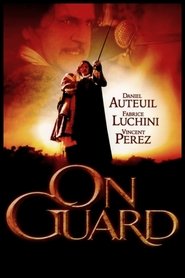 France 17th century during the reign...
France 17th century during the reign...On Guard 1997
France, 17th century, during the reign of Louis XIII. When a dear friend, the Duke of Nevers, is treacherously assassinated by a powerful relative, a skilled swordsman, the noble Henri de Lagardère, seeks his rightful vengeance as he tries to protect the innocent life of the duke's last heir.
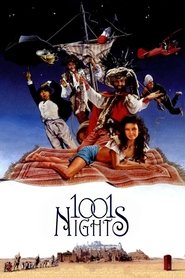 Sheherazade has been married to a...
Sheherazade has been married to a...1001 Nights 1990
Sheherazade has been married to a ruler who wants many wives, but only one at a time. Consequently, as soon as he has bedded them, he has them put to death. In most retellings, the girl staves off this unfortunate conclusion by putting off the connubial event for a thousand and one nights, telling irresistible stories instead. In this one, she gets hold of a magic lamp.
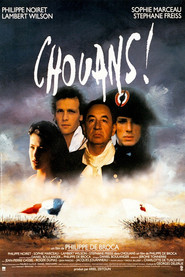 Directed by Philippe de Broca the...
Directed by Philippe de Broca the...Chouans! 1988
Directed by Philippe de Broca, the film recounts a bloody episode of the French Revolution. 1793, the Terror . In Vendée and in Bretagne, the chouans are revolting against the young Republic and fight for the monarchy restauration. The civil war divides also the family of the Count Savinien de Kerfadec, a liberal and generous noble and a flying machines inventor.
 Charlotte flies to East Africa to...
Charlotte flies to East Africa to...The African 1983
Charlotte flies to East Africa to build a tourist center near Lake Williams where the pygmies live. Here she meets her husband Victor, a devoted conservationist who left her three years ago to live in the jungle. Can you imagine his enthusiasm when she arrives at the conclusion that the ideal place to build this holiday resort is his kitchen garden?
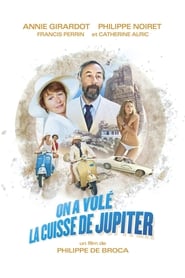 Antoine a professor of Greek and...
Antoine a professor of Greek and...Jupiter's Thigh 1980
Antoine, a professor of Greek, and Lise, a police inspector, honeymoon in Greece. There they meet a young couple, Charles, an archaeologist, and Agnes, a dishy flirt. Charles unearths the lovely buttocks of a classical statue and is determined to donate it to the Louvre. Agnes wants to sell it and gets a handsome local sailor to take it for an appraisal. When the sailor is murdered, the police suspect Charles and arrest Antoine as his accomplice. Lise swings into action, but before she can clear the men, Agnes springs them from jail, and now Lise must help them elude the police, find the real murderer, and recover the statue fragment. More art goes missing. What is the statue's secret?
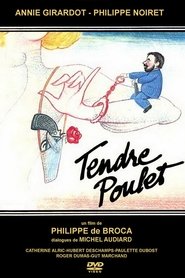 When Lises car bumps Antoines bike...
When Lises car bumps Antoines bike...Dear Inspector 1978
When Lise's car bumps Antoine's bike, they recognize each other from a brief fling 20 years before while at the Sorbonne. He's now a professor of Greek; she's loathe to tell him she's a police inspector. A call interrupts their first dinner date: a Deputy of the National Assembly has been murdered. She has a suspect, another Deputy, and must track him while deflecting Antoine's eye from her vocation. All roads in the inquiry lead to Christine Vallier, the dead Deputy's mistress, a beguiling 22-year-old whose mother ran the Assembly's snack bar. When more deputies die and Antoine learns Lise's identity, she must act quickly solve the crime and save her future.
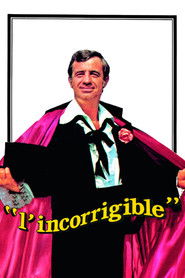 Victor Vautier is incorrigible hes in...
Victor Vautier is incorrigible hes in...Incorrigible 1975
Victor Vautier is incorrigible: he's in constant motion, working several cons at once, using different names and changing disguises. He's charming and outrageous, incapable of uttering a sentence that isn't embellished or an outright lie. His life goal is to make enough money to build a sea wall to protect Mont-Saint-Michel. Charlotte, a parole officer, shows up: she's young and seems taken in by Victor. He discovers she lives above the Senlus Museum, where her parents are the curators. With two pals he decides to steal a priceless El Greco triptych and then ransom it back to the cultural ministry. What will Charlotte do when she realizes he's used her to make a fortune?
 A writer of pulpy book series...
A writer of pulpy book series...The Magnificent One 1973
A writer of pulpy book series in which he's the hero and his beautiful English roommate is the love interest attempts to finish his new book in time at the publisher's demand.
 A millionaire realizes he really wants...
A millionaire realizes he really wants...Up to His Ears 1965
A millionaire realizes he really wants to live after he has hired an assassin to kill him.
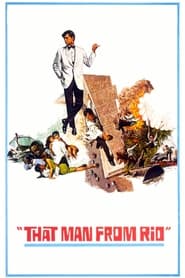 French military man Adrien Dufourquet gets...
French military man Adrien Dufourquet gets...That Man from Rio 1964
French military man Adrien Dufourquet gets an eight-day furlough to visit his fiancée, Agnès. But when he arrives in Paris, he learns that her late father's partner, museum curator Professor Catalan, has just been kidnapped by a group of Amazon tribesmen who have also stolen a priceless statue from the museum. Adrien and Agnès pursue the kidnappers to Brazil, where they learn that the statue is the key to a hidden Amazon treasure.
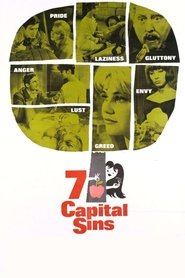 Seven directors each dramatize one of...
Seven directors each dramatize one of...The Seven Deadly Sins 1962
Seven directors each dramatize one of the seven deadly sins in a short film. In "Anger," a domestic argument over a fly in the Sunday soup escalates into nuclear war. In "Sloth," a movie star would rather pay someone to tie his shoe than bend over to do it himself, and he can't be bothered to accept a starlet's sexual favors. In "Gluttony," a peasant family on its way to the funeral of a relative who died from indigestion stops regularly to eat and drink en route, arriving in time to eat some more. In "Greed," a high-class prostitute refunds the price of a cadet's lottery ticket. In "Pride," an unfaithful wife finds reason to reform. And so on through lust and envy.
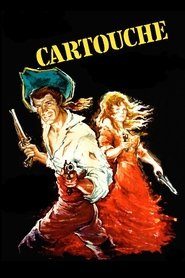 In the 18th century Louis de...
In the 18th century Louis de...Cartouche 1962
In the 18th century, Louis de Bourguignon is working with the Malichot's gang, but their ways are too 'unethical' for him. He creates his own band, acting under the name of Cartouche, making audacious robberies of the rich people, and even distributing the takings with the poor. Thus, cartouche attracts the people's sympathies, Venus's love, and hate from the Police and Malichot... Cartouche can escape all the traps they set at him - except the entrapments of love. Eventually, he will be saved by a woman, at her own cost.
 For young Parisian boy Antoine Doinel...
For young Parisian boy Antoine Doinel...The 400 Blows 1959
For young Parisian boy Antoine Doinel, life is one difficult situation after another. Surrounded by inconsiderate adults, including his neglectful parents, Antoine spends his days with his best friend, Rene, trying to plan for a better life. When one of their schemes goes awry, Antoine ends up in trouble with the law, leading to even more conflicts with unsympathetic authority figures.
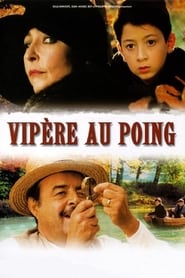 1920 Jean Rezeau and his elder brother...
1920 Jean Rezeau and his elder brother... Marc runs a psychotherapy course at...
Marc runs a psychotherapy course at...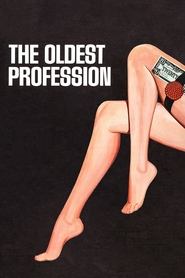 A collection of sketches that tells...
A collection of sketches that tells...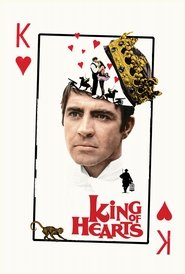 An ornithologist mistaken for an explosives...
An ornithologist mistaken for an explosives...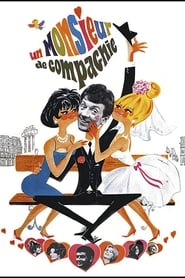 A dedicated layabout JeanPierre Cassel bounces...
A dedicated layabout JeanPierre Cassel bounces...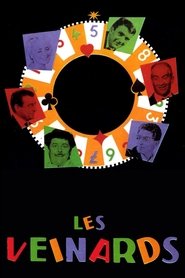 A light French comedy of 5 segments
A light French comedy of 5 segments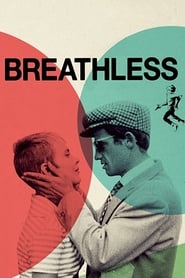 A smalltime thief steals a car...
A smalltime thief steals a car...